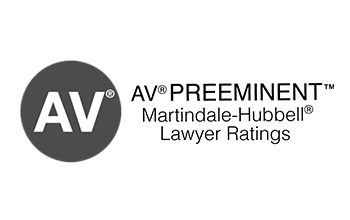The Michigan Supreme Court Clarifies The Confusing Theory Of Conversion
September 28, 2015 Category: News
Hertz Schram attorneys Deborah Lapin and Matthew Turchyn recently obtained a favorable opinion on behalf of Ocwen Loan Servicing, LLC in the Michigan Court of Appeals in Sutter v Ocwen Loan Servicing, LLC, Case No. 320704 (April 21, 2015). The issue before the Court of Appeals was whether Ocwen converted a $16,860.68 property insurance check when it was a named payee on the check but did not attempt to cash, endorse or negotiate the check. The trial court found that Ocwen converted the check pursuant to MCL 600.2919a(1), Michigan’s statutory conversion statute, because it was not entitled to the check as it did not have an insurable interest in the property. The trial court awarded the plaintiffs treble damages and attorney fees upon finding that Ocwen statutorily converted the check pursuant to MCL 600.2919a(1).
The Court of Appeals vacated the judgment of statutory conversion and the trial court’s award of attorney’s fees to the plaintiffs, relieving Ocwen of judgment in the amount of $44,022.00 plus taxable costs. The Court of Appeals found that Ocwen did not statutorily convert the check because it did not convert the property to its own “use” as required under MCL 600.2919a(1). The Court of Appeals noted that Ocwen’s handling of the check was “passive” pursuant to Aroma Wines & Equipment, Inc v Columbia Distribution Services, Inc, 303 Mich App 441; 844 NW2d 727 (2013) as it never demanded or requested the check from the property insurer and never cashed, deposited, endorsed or negotiated the check. At best, the Court of Appeals established that Ocwen’s actions in temporarily depriving the plaintiffs of the check constituted common law conversion because the check was not turned over to the plaintiffs in a timely manner.
Coincidentally, Aroma Wines was pending in the Michigan Supreme Court at the time that the Michigan Court of Appeals decided Sutter v Ocwen. On June 17, 2015, the Michigan Supreme Court issued its opinion in Aroma Wines which clarified the distinction between common law conversion and statutory conversion. The Michigan Supreme Court found that common law conversion involves conduct inconsistent with the owner’s property rights. On the other hand, statutory conversion pursuant to MCL 600.2919a(1) requires a converter to use the property for “its own use.” Whereas the Court of Appeals in Aroma Wines found that “use” required the use of the converted property for its intended use, i.e., drinking the wine, the Michigan Supreme Court has defined “use” more broadly by holding that conversion occurs if a converted uses property “for its own purposes.”
Statutory conversion remains the popular conversion claim because of the possibility of treble damages and attorney’s fees. Aroma Wines may make it easier for a litigant to establish such a claim if one can prove that the converting party affirmatively used the property for its own purposes as opposed to simply depriving the owner of the use of the property.
















